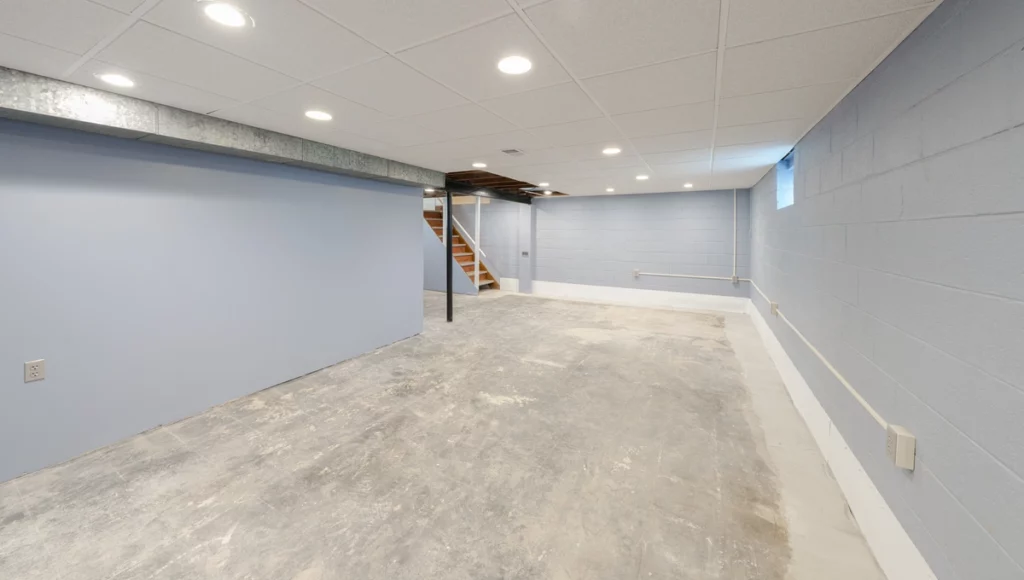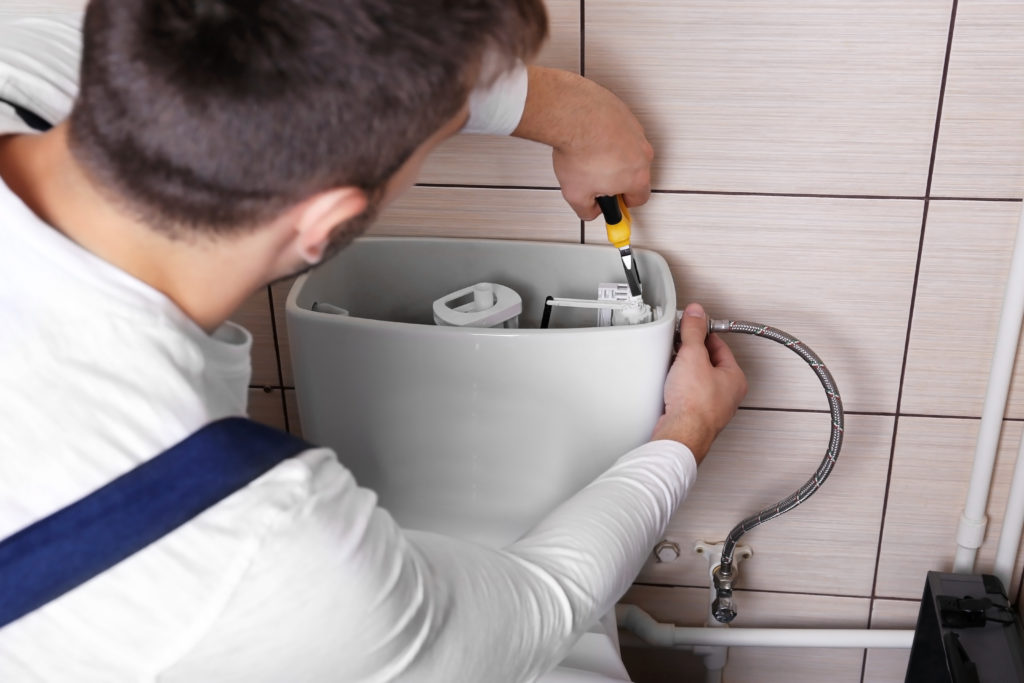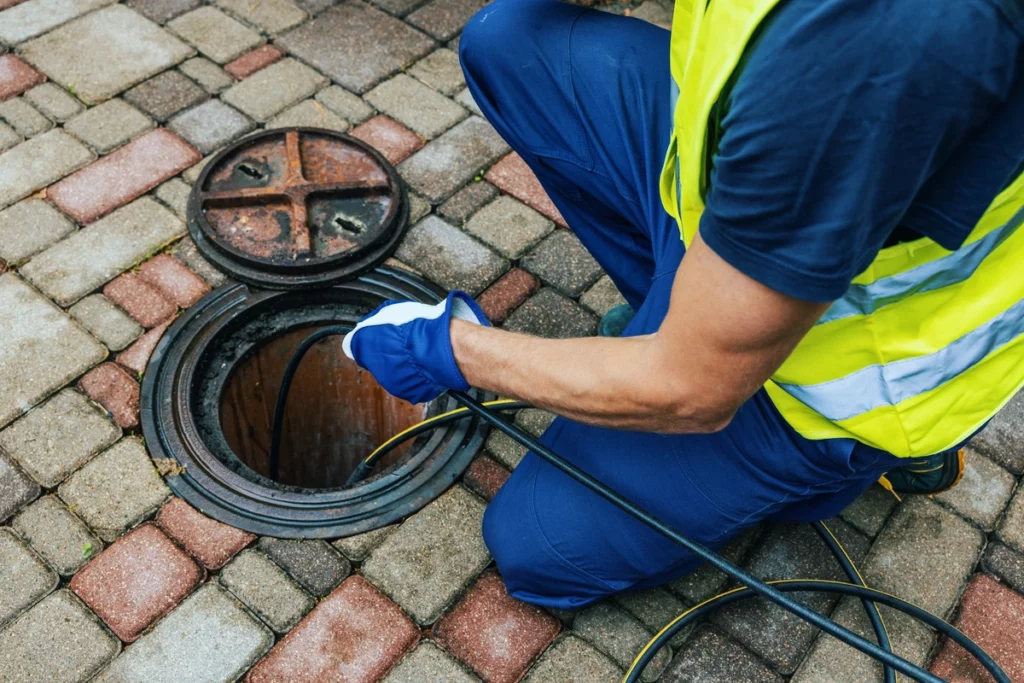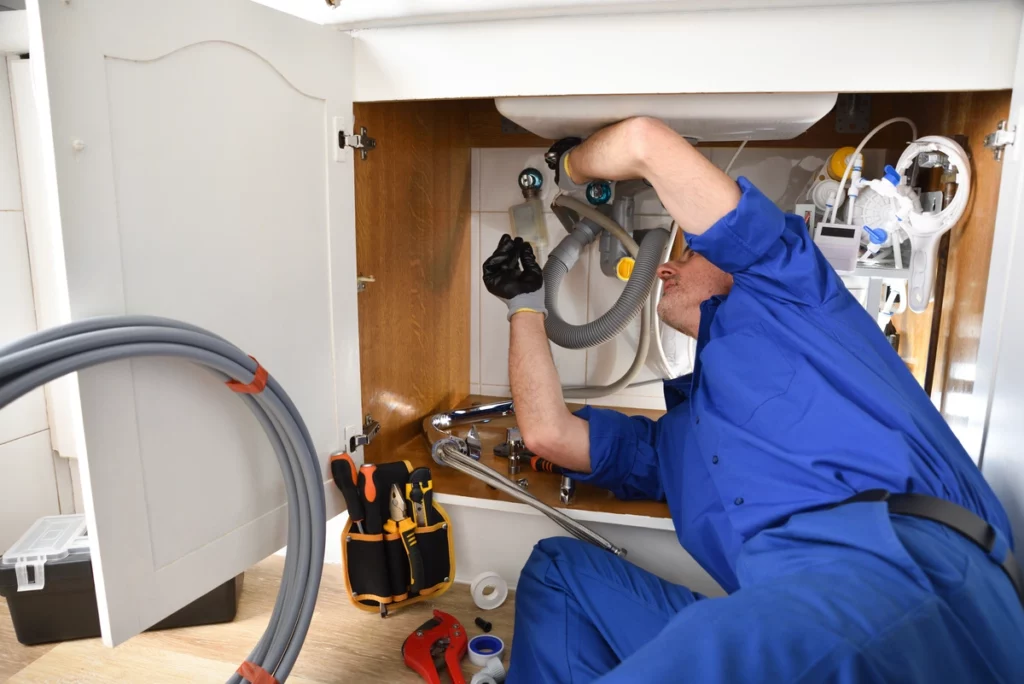Basement flooding can be a homeowner’s worst nightmare. It not only leads to property damage but also poses health and safety risks. Understanding the common causes of basement flooding, its dangers, and the necessary steps to take when your basement has flooded is essential for protecting your home and family.
If basement floods are haunting your dreams, you aren’t alone. The best thing that you can do to calm your fears is to prepare accordingly! In this article, we will explore:
- What causes basement flooding
- What you should do when you see flooding
- When to call a professional plumber for assistance
Keep your basement floor flood-free and safe for years to come with these tips.
5 Common Causes of Basement Flooding
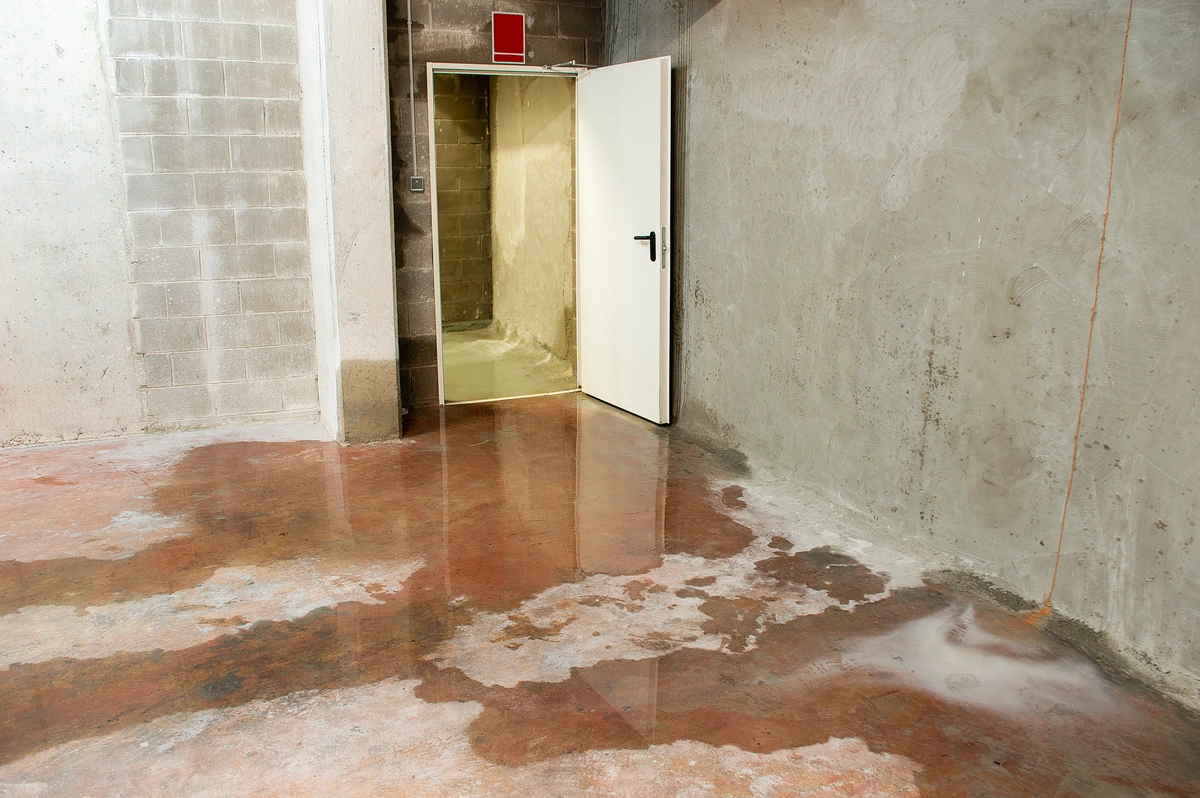
Whether you experience yearly flooding or it happens only once, it can be difficult to identify the source of the problem. Here are a few of the most common reasons that your basement might be flooding.
1) Poor Drainage Systems
Inadequate drainage systems are one of the most common causes of basement flooding. When rainwater or melting snow has no proper path to flow away from your home’s foundation, it can seep into the basement. Clogged or damaged gutters, downspouts, and improper grading around the foundation can exacerbate this issue.
Solution: Ensure your gutters and downspouts are clear of debris and direct water away from the foundation. Proper grading should encourage water to flow away from the house.
2) Heavy Rainfall or Storms
Torrential downpours and severe storms can overwhelm drainage systems, causing water to infiltrate your basement. Insufficient capacity in stormwater management systems can further contribute to basement flooding during heavy rainfall events.
Solution: Consider installing a sump pump with a backup power source to remove excess water from your basement during storms. Regularly clean and maintain your gutters and downspouts to prevent blockages.
3) Foundation Cracks
Cracks in your home’s foundation can provide an entry point for water, especially during heavy rains or flooding. Over time, the natural settling of a house can cause cracks to develop, making your basement vulnerable to water intrusion.
Solution: Regularly inspect your foundation for cracks and address any issues promptly. Waterproofing measures like sealants or membranes can help prevent water infiltration through cracks.
4) Leaking Basement Windows and Wells
If basement windows or window wells are not properly sealed or maintained, water can easily seep in during rainfall or when snow melts. Cracks in window wells can also allow water to enter.
Solution: Ensure your basement windows are properly sealed, and consider installing window well covers to protect against water infiltration. Regularly inspect and maintain window wells for cracks or damage.
5) Malfunctioning Sump Pump
A sump pump is a critical component in preventing basement flooding, as it helps remove excess groundwater. If your sump pump fails or malfunctions, it can lead to flooding during heavy rain or snowmelt.
Solution: Test your sump pump regularly to ensure it is functioning correctly. Consider installing a backup sump pump system to provide protection in case the primary pump fails.
The Dangers of Basement Flooding
Basement flooding is obviously inconvenient, but it can cause more problems than just cleanup. Here are some of the damage your home might face if your basement floods.
Structural Damage 🏚️
Water can weaken the structural integrity of your home, especially if it repeatedly infiltrates the basement. Foundation damage, rotting wood, and compromised walls can be costly to repair and reduce your property’s value.
Mold and Mildew Growth 🍄
A wet basement provides the ideal environment for mold and mildew to thrive. Exposure to mold can lead to various health issues, including respiratory problems and allergies.
Electrical Hazards ⚡️
Water and electricity do not mix well. Flooding can damage electrical systems in your basement, increasing the risk of electrical fires and electrocution.
Contamination ☣️
Floodwater can carry contaminants, such as sewage and chemicals, into your basement. This poses serious health risks and requires immediate attention.
Loss of Valuables 💍
Basement flooding can result in the loss of valuable belongings, including furniture, appliances, and sentimental items that cannot be replaced.
Steps to Take When Your Basement Has Flooded
Identifying a flood is not all that difficult. Knowing what to do? That can be a challenge. Here are some of the key steps you should take to deal with a flooded basement.
- Safety First: Before entering a flooded basement, ensure that the power is turned off to prevent electrical hazards. Additionally, wear protective gear such as rubber boots and gloves.
- Identify the Source: Determine the source of the flooding. Is it due to heavy rainfall, a burst pipe, or a sump pump failure? Identifying the cause will help you address the issue effectively.
- Remove Water: Use a submersible pump, a wet/dry vacuum, or buckets to remove standing water from the basement. Dispose of the water properly and avoid pouring it into the sewer system, as it can overload municipal sewers.
- Dry and Dehumidify: Use fans and dehumidifiers to speed up the drying process. Proper ventilation is essential to prevent mold growth.
- Salvage Belongings: Retrieve and assess any salvageable items. Dispose of damaged items, and consult with professionals for cleaning and restoration if necessary.
- Disinfect and Clean: Disinfect the affected area to eliminate bacteria and contaminants. Clean all surfaces, including walls, floors, and belongings that may have come into contact with floodwater.
- Inspect for Damage: Thoroughly inspect your basement for structural damage, foundation cracks, and any electrical issues. Address these concerns promptly to prevent further damage.
When to Call a Professional Plumber
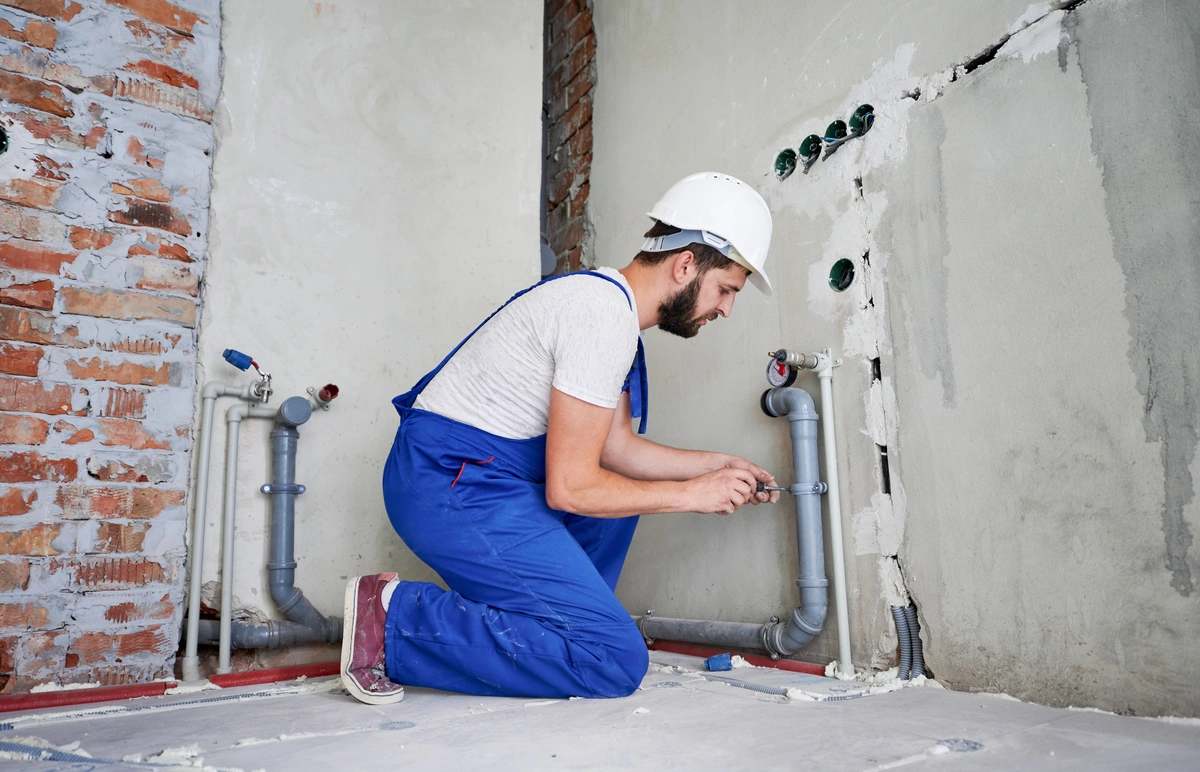
While some basement flooding issues can be addressed by homeowners, there are situations when it is crucial to seek the expertise of a professional plumber:
- Sewage Backup: If your basement is flooded with sewage, it poses severe health risks and requires immediate attention from a professional plumber and a cleanup crew equipped to handle hazardous waste.
- Burst Pipes: A burst or damaged water pipe can lead to rapid flooding in your basement. A plumber can quickly identify and repair the source of the leak.
- Sump Pump Failure: If your sump pump is not functioning correctly or has failed, it’s advisable to call a professional plumber to assess and repair or replace the pump. A backup sump pump can provide added protection.
- Complex Drainage Issues: If you are experiencing recurring basement flooding due to complex drainage problems or foundation issues, it is best to consult with a plumber who specializes in basement waterproofing solutions.
Call On the Pros!
Basement flooding can be a distressing experience, but understanding the common causes, dangers, and appropriate steps to take can help mitigate the damage and prevent future occurrences. Regular maintenance, proper drainage, and vigilant monitoring of your basement can significantly reduce the risk of flooding. When faced with a basement flood, prioritize safety, act promptly, and don’t hesitate to seek professional help when needed. By taking these precautions, you can safeguard your home and the well-being of your family.
At AJ Alberts Plumbing, we’re well-versed in different types of basement leaks and can help you find a customized solution. Contact us today to get started!

